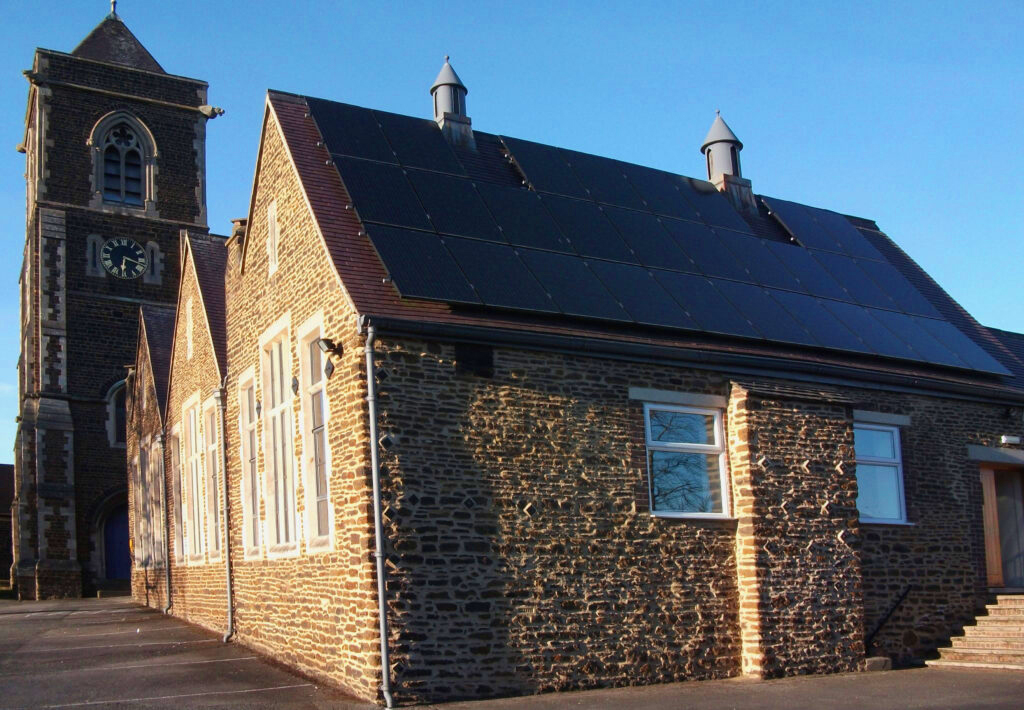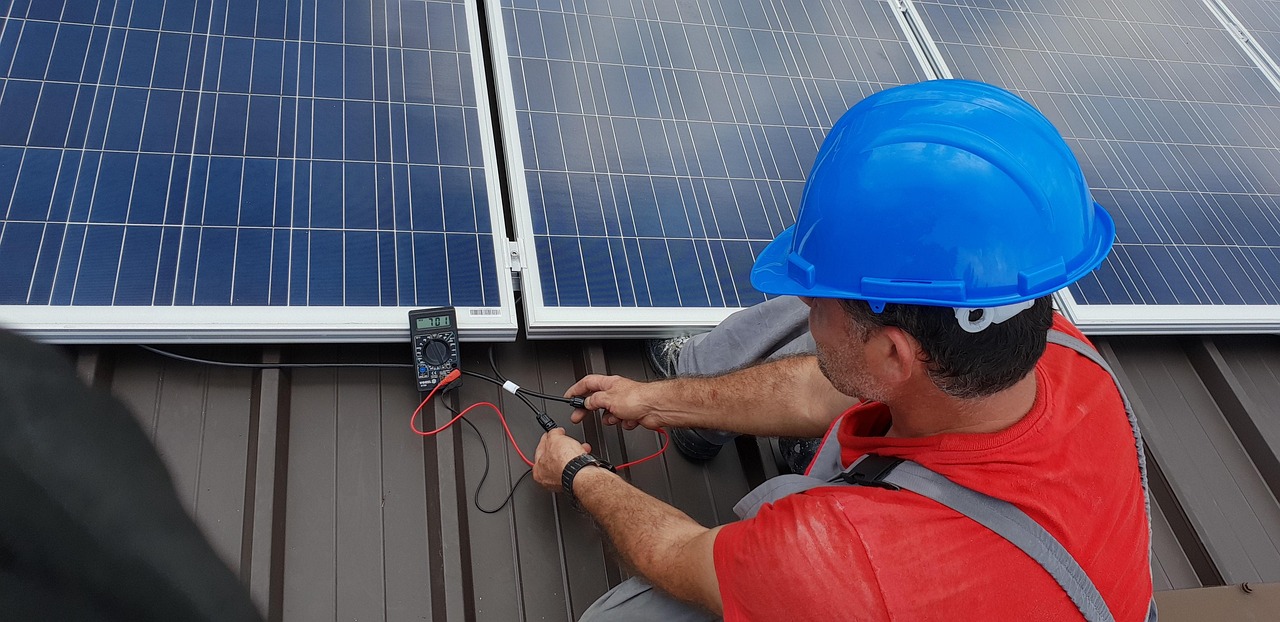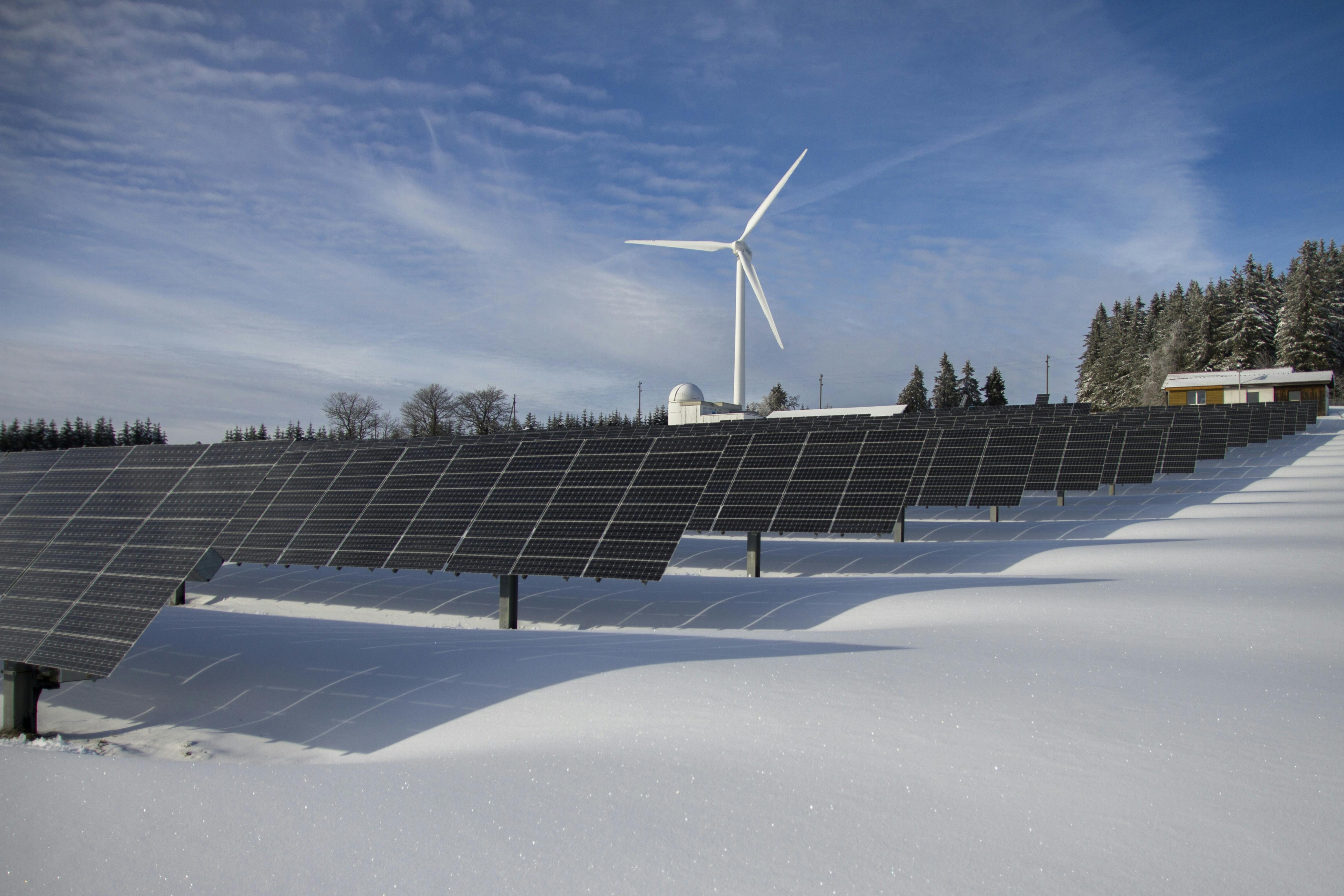The Cost-Effectiveness of Solar Panels
Are solar panels cost-effective? We dive into the value of going solar, the initial costs, and long-term savings they bring.

Solar panels may have an upfront cost, but they represent a valuable investment for homeowners. In this guide, we’ll explore the cost-effectiveness of solar panels and why they are worth considering.
Just as businesses invest in resources, like IT systems or new premises, to enhance profitability, homeowners can invest in their properties to improve long-term value and comfort. For instance, installing loft insulation or double glazing can lower energy bills, while building a garage can extend your car's lifespan and boost your home’s resale value. Similarly, converting a room into a home office can enhance productivity and cut commuting costs.
However, solar panels stand out among home improvements because they not only reduce your bills and carbon footprint but can also generate income. So, what is the cost of installing solar panels on your roof? How long will it take to see a return on that investment? Can you actually profit from solar energy?
In this article, we’ll provide compelling figures that demonstrate the cost-effectiveness of solar panels and their potential benefits.
Key Takeaways:
The Cost of Solar Panels
Generally speaking, for UK residents, installing solar panels costs less than a used family car, but more than a family holiday in Barbados. As every home and location is different, we can’t put a definite price on an individual installation without seeing the details. But according to our own figures, built up from hundreds of installations, it’s roughly this:
- A small home, generating a maximum of 3kW: £6,000–7000
- A medium home, 4–5kW: £6,500–8000
- A large home, >6kW: £8,000 and upwards
These are average entry-level estimates, for a system without a battery, and with panels working at maximum efficiency, i.e. in perfect sunlight. The variables come in the number of panels you have installed, how your roof is oriented, and things like weather conditions and how clean your panels are. In essence, the more panels you have, the more energy you’ll generate, and the quicker your system will pay for itself. We keep an updated page going that details average installation costs for the UK.
How Cost-Effective are Solar Panels?
So how does that compare to average household usage? According to Ofgem:
- A small home uses about 1,800 kWh a year
- A medium home uses 2,700 kWh a year
- A large home uses 4,100 kWh a year
Again, these are averages. A large home with a single occupant and gas central heating will use less electricity than a small home with a family of five and electric under-floor heating. You’ll probably know if your household is about average. However, the more you rely on electricity for your everyday living, the more you’ll save.
For example, Cambridge boasts a solar intensity of 511 w/m2, making it prime real estate for solar panel installations. While the exact savings will differ, on average, homeowners with solar panels in Cambridge save around £1,429 annually.

How Solar Panels Save Money
Imagine you have a 5 kW solar setup on your roof. Let’s say it’s running at 50% efficiency during the day. That means it’s providing a steady stream of 2.5 kW. If you switch your 2 kW kettle on, the solar panels will cover all the energy needed to boil the water.
At night, it’s a different story. Your panels will be generating no electricity, so you’ll be 100% reliant on other sources of power. But that other source can mean two things.
First, there’s the grid – you’ll be getting your energy from power stations, wind farms and hydroelectric power plants.
But second, you can use your own energy if you have batteries. Think about it – you’re not boiling kettles and using your oven all day long, so where does that excess energy go? Well, you can sell your excess back to the grid, which is great. But come nightfall, in the absence of batteries, you’re just buying it back from the grid. If all that excess power charges up batteries, you can still be using your own energy long into the night. You might rarely have to turn to the grid at all. And best of all, once your batteries are fully charged during the day, you can still sell your excess to the grid.
Can Solar Panels Make a Profit?
Some people installing solar might think they can use their energy to power their homes and turn a profit by selling excess power to the grid. We’d urge caution here, though. Although there may well be times when you’re supplying the grid (exclusively during daylight hours), you’ll probably rely on the grid at least some of the time. Throw in standing charges for being connected, and for most people, the panels aren’t boosting their income in pure terms.
Is Solar Energy Cost-Effective?
They are, however, greatly reducing your electricity bills, both by using your own power, and by potentially selling your excess. You would need quite a large solar array, great battery capacity, hyper-efficiency and flag-cracking weather to be able to generate all your own power and sell your excess to the grid, all year round. In short, it wouldn’t be practicable.
How Does Solar Compare to Other Energy Saving Measures?
Domestic solar energy isn’t the only way you can economise and help the environment. Generally speaking, a technology that saves energy will naturally cut your monthly bills and have a positive environmental impact, and that’s great. But if you’re looking at technology from an economic standpoint (i.e., your household finances), you mustn’t forget to factor in the up-front cost of buying and installing the equipment, as well as the ongoing maintenance costs.
Here’s how solar stacks up against other energy-saving measures as far as cost savings are concerned:
Cost-Effectiveness Solutions:
- Solar panels:some text
- Indicative Cost: £10,000
- Estimated Annual Saving: £1,200
- Payback Period: 8 years
- Air source heat pump:some text
- Indicative Cost: £14,000
- Estimated Annual Saving: £8
- Payback Period: n/a
- Electric car:some text
- Indicative Cost: £25,000
- Estimated Annual Saving: £1,100
- Payback Period: 23 years
- Cavity wall insulation:some text
- Indicative Cost: £2,700
- Estimated Annual Saving: £300
- Payback Period: 9 years
- Roof/Loft insulation:some text
- Indicative Cost: £930
- Estimated Annual Saving: £285
- Payback Period: 3 years
- Double glazing:some text
- Indicative Cost: £7,500
- Estimated Annual Saving: £195
- Payback Period: 38 years
- Draught proofing:some text
- Indicative Cost: £250
- Estimated Annual Saving: £50
- Payback Period: 5 years
As you can see, solar performs pretty well when you look at the payback period (the time it takes for your energy savings to overtake your original payments). Few are disputing the environmental benefits of heat pumps and electric cars, but even with government incentives, they are less effective on a return-on-investment basis. That’s largely down to their high initial costs, but as you’re replacing one energy source with another (fossil for electric), you’ll still have costs, but they’ll just be less. If you’re ignoring the financial cost and focusing on the green benefits, heat pumps and electric cars are fantastic for the average household.
Household Emission Reductions:
- Heat Pump: 24% reduction in household emissions
- Electric Car: 16% reduction in household emissions
- Solar Panels: 11% reduction in household emissions
- Cavity Wall Insulation: 11% reduction in household emissions
- Roof/Loft Insulation: 7% reduction in household emissions
- Double Glazing: 7% reduction in household emissions
- Draught Proofing: 2% reduction in household emissions
Note: The figures are indicative, based on an 'average' UK home and will vary significantly depending on a number of factors, e.g. your energy usage or the efficiency of your boiler.
Solar still holds its own, with environmental benefits in the ballpark of home insulation and double glazing. If you insulate, double glaze and go solar, you can imagine how much less energy you’ll use. In a country that still largely relies on fossil fuel for about 40% of its grid electricity, that’s a big deal.
Try Our Solar Panel Estimator Now
We’ve provided general information above, but if you want a personalised estimate for how solar panels could benefit your home, both financially and environmentally, our tool can help. Simply visit our homepage, enter details like your energy usage, location, and roof orientation, and you'll get a tailored estimate of your potential energy savings. If the results look promising, we can also connect you with trusted local installers to get started.
Discover how much you could save!
Ready to see what you can save?
Our solar calculator is 100% free to use. Enter your postcode below to get started.

Based on 400+ Trustpilot reviews






